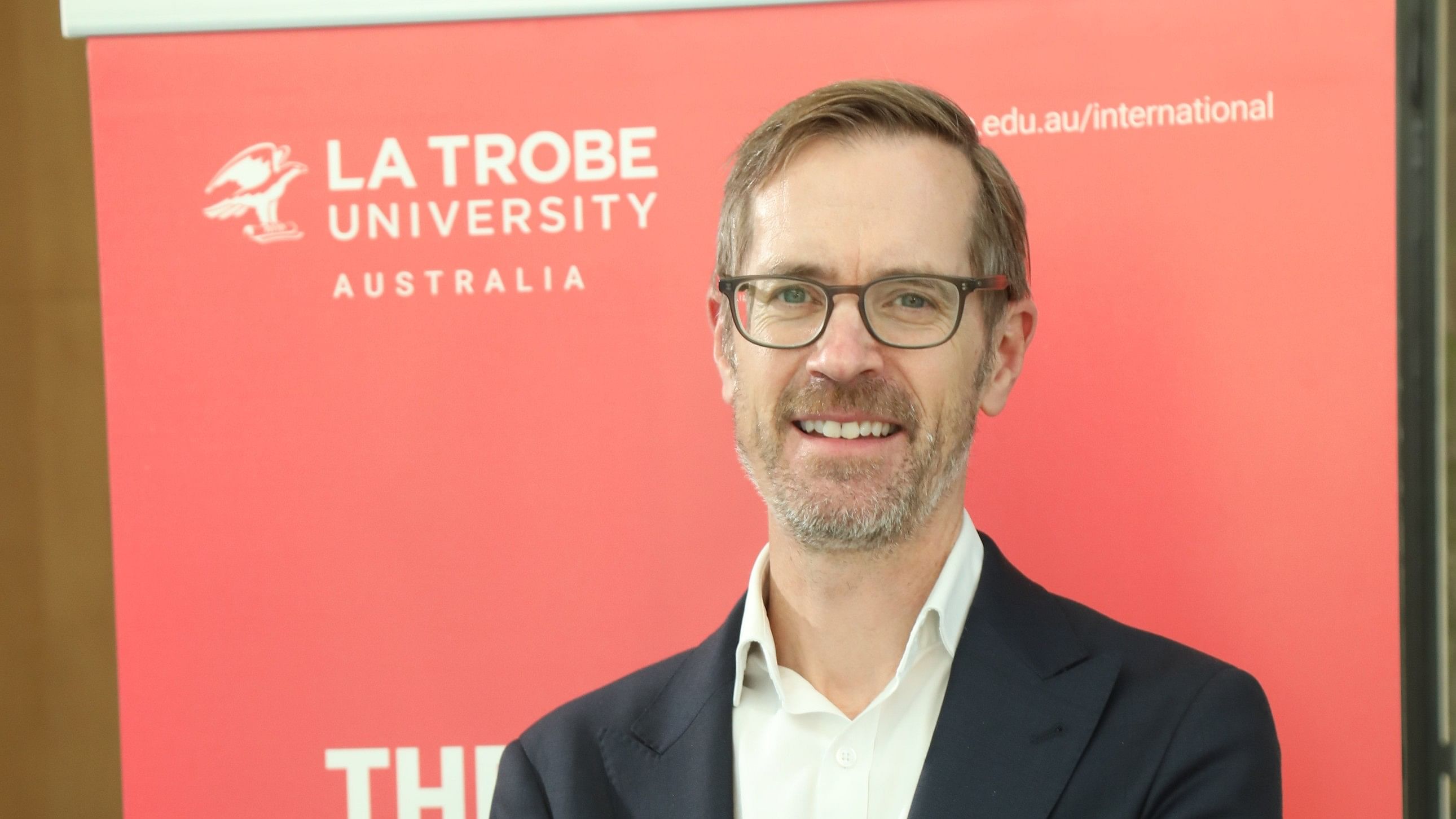
Theo Farrell, the Vice-Chancellor and President of La Trobe University.
Credit: Special Arrangement
New Delhi: During the year 2023, India and Australia signed multiple agreements to boost trade, investments and collaborations in the research and education sector.
While, Economic Cooperation and Trade Agreement seeks to boost the flow of bilateral trade and investments, the two countries have also inked deals to strengthen cooperation in the areas of education and skill development.
Further to these agreements, Australia’s La Trobe University has joined hands with leading Indian higher education institutions Indian Institute of Technology (IIT) Kanpur, Tata Institute of Social Sciences (TISS) and Birla Institute of Technology and Science, Pilani (BITS-Pilani) to carry out joint research in the areas of smart cities and agri-business. Vice Chancellor and President of La Trobe University Theo Farrell is on a visit to India to deepen industry and academic engagements.
In an interview with DH’s Gyanendra Keshri, Farrell elaborates on India-Australia growing bilateral engagements and La Trobe University’s expansion plans. Edited excerpts:
How do you see India-Australia engagements in the areas of trade and research?
Several agreements were signed between India and Australia last year. There is Economic Cooperation and Trade Agreement. To promote cooperation in the education sector the two countries signed an agreement called Framework Mechanism for Mutual Recognition of Qualifications. Under this agreement there is provision of mutual recognition of credits. There are commitments to promote research and academic collaborations. Taking forward these commitments, La Trobe University has signed agreements with IIT Kanpur, TISS (Tata Institute of Social Sciences) and Birla Institute of Technology and Science, Pilani (BITS-Pilani).
What kind of collaborations La Trobe will have with these Indian institutions?
This is a four-way partnership to support research and innovation. The broad theme is smart cities. Under this you have multiple areas like road safety, transportation and food security. Within this partnership we have 100 jointly supervised PhD researchers. These researchers will work on finding solutions to the issues concerning the common people. One example is some of these researchers will work on how to improve the quality and supply of milk in cities using AI.
Will there be focus on implementing Australia’s experience in solving problems in India?
I would not suggest that even for a second. The issues and challenges in the two countries are different. So it’s certainly not about implementing an Australian solution in India. It’s simply about collaboration between the researchers of Australia and India. Australian researchers and Indian researchers will work together to find a solution.
Who will fund these research initiatives?
The collaboration engagement with the Indian universities will be under the Asian Smart Cities Research Innovation Network. La Trobe university founded this network in 2019. Today it is the single largest research internationalisation initiative with joint investment of more than 43 million Australian dollars (around Rs 235 crore). The network has over 250 researchers. The funding is mobilised jointly by the universities.
What is the proportion of Indian students at La Trobe University?
We have over 35,000 students across seven campuses. Around 20% of our students are international and out of that half are Indians. So about 10% of our overall students are Indians. We have a very deep rooted association with India. We are one of only two universities in Australia teaching Hindi, and the only Australian university to teach a subject on the history, music and storytelling of popular Hindi cinema.
Is there any plan of opening La Trobe university campus in India?
We have a large office in Delhi already. We have been here for many many years. I took charge as VC of La Trobe university 8 weeks back. This is my first overseas visit as VC. India is very important for us. We are looking to deepen our partnerships. We are considering various options. India’s new education policy will make operation of foreign universities in India much easier. La Trobe is not just about teaching. We give equal focus to research and industry engagements. If we can develop some propositions on these three key aspects of education, research and industry engagements, we are interested. But I am not interested just in education.